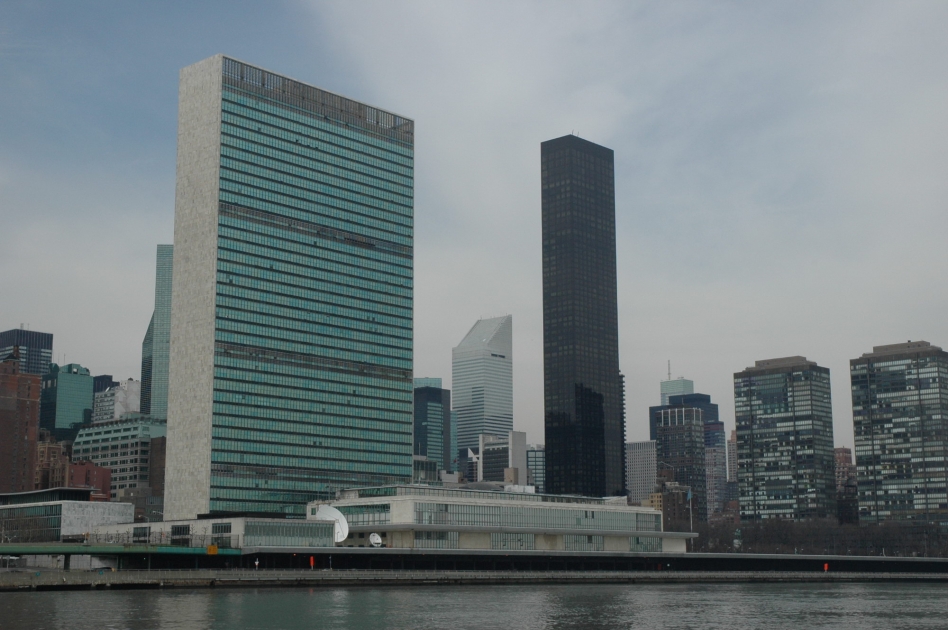Statement by Deputy Permanent Representative Vladimir Safronkov at a special event on the occasion of the 50th anniversary of entry into force of the Treaty on the Non-Proliferation of Nuclear Weapons (NPT)
Dear Ladies and Gentlemen,
Thank you, I will try not to be boring in this very enjoyable environment. Specifically, I would like to thank families of our diplomatic heroes, those who had done a lot so that the Non-proliferation Treaty (NPT) could come true. Let me also express deep gratitude to our American friends for convening this very significant meeting that is dedicated to a historic common achievement of our diplomatic services. We also value the precious British intellectual contribution.
When I came in here today, I heard Ms.Sarah Bidgood say “Russian and American adversaries”. Then I thought “Thank God, as a result of shared efforts of our very skillful diplomats, the USSR (then Russia) and the United States, besides regional crises, were real adversaries only on hockey rinks”. On other dossiers, concerns were addressed in a very cooperative and constructive mood. One of the results of cooperation between our countries is this brilliant Treaty – the NPT.
Today we commemorate the 50th anniversary of the entry into force of the NPT. Throughout its existence, the NPT has become an almost universal legal instrument, aimed at securing international stability and security.
The indefinite extension of the NPT in 1995 was an important step towards strengthening the non-proliferation of nuclear weapons.
For half a century, the NPT has been deterring the threat of nuclear weapons proliferation, guaranteeing the development of international cooperation in the peaceful use of nuclear energy and ensuring a step-by-step approach towards nuclear disarmament.
The Treaty is exceptionally important for strengthening trust in the world and ensuring stability at a global scale. Maintaining and enhancing its effectiveness is our responsibility today. The NPT could rightfully be called the cornerstone of the modern system of international security. The founding fathers of the Treaty managed to find such solutions that not only successfully passed multiple “stress-tests” in the past, but up until now allow us to meaningfully react to modern threats and challenges.
The Treaty is an evidence in itself that only a genuine combined effort by States to counter the challenges of our time can provide long-lasting results in resolving crisis situations.
Regardless of different perceptions, a vivid demonstration of this conclusion could be found in the Joint Comprehensive Plan of Action (JCPOA) on the settlement of the Iranian nuclear program. The very reason why this Agreement could be reached in the first place, was because it took its foundation in the NPT, and because its initial philosophy was in the NPT. We are convinced that every opportunity at our disposal should be used in order to preserve the JCPOA as a unique, multilateral diplomatic achievement.
The Russian Federation being together with the US and UK an NPT depositary State, feels that it has a special responsibility for preserving the viability of the Treaty.
Russia strictly observes all of the provisions of the NPT. We sequentially are reducing our nuclear arsenal and lowering the role of nuclear weapons in our national defense policy. We are also providing assistance to other States Parties in the peaceful use of nuclear energy and sharing with them our expertise. Russia is also supporting the strengthening of the IAEA safeguards mechanism, which provides for a reliable verification system for the implementation by States of their obligations under the Treaty.
Today Russia and other NPT depositary States – US and UK – have released digital brochures with declassified documents pertaining to the elaboration and signing of the Treaty. They clearly demonstrate how in a most difficult international environment, the diplomatic service of our country turned out skillful enough to reach palpable diplomatic results that up to now have guaranteed international security and strategic stability.
History matters. But the present has a significant importance, because today we bear responsibility to future generations.
On 27 April the NPT Review Conference will begin its work in New York. However, before addressing that, let me make another point. Recently another success was achieved, and unfortunately, in the US absence. In November, many Middle Eastern states and Iran got together at one table to discuss a very important component of the NPT – a zone free of WMDs and their delivery systems in the Middle East. I was there as an observer and I was surprised and proud to see how Arabs constructively cooperated with Iran. It did not come easily, but still they were able to come to a common denominator, to work out a roadmap for future interaction. It seems to me that regardless of political priorities, this process deserves to be supported, because it works for mitigation of the confrontation.
Now we are heading to the NPT Review Conference. I am not in a world of illusion, but it is our conviction that its central topic should be the reaffirmation by all States Parties of their adherence to the goals of the Treaty and to their obligations under it. In order for the Conference to be a success all States Parties should put aside their differences.
Ambassador Zlauvinen, it is so nice to have you with us. With you as President Designate of the NPT RC, we are in very reliable hands. I am sure you will be brilliantly able to bring us to concrete results.
Thank you.
